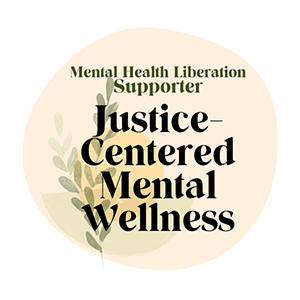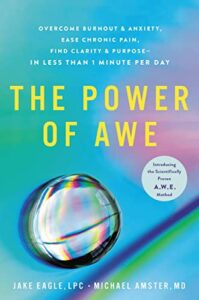Podcast: Play in new window | Download (Duration: 52:41 — 120.6MB)
Subscribe: Apple Podcasts | Spotify | Amazon Music
Let's start micro-dosing mindfulness – it takes less than 1 minute a day
The idea of adding 30 minutes of extra meditation to our already busy schedules can feel overwhelming – but Jake Eagle has dedicated years to his research and found the mindfulness loophole. Awe is an incredibly powerful tool that can over time help us rewire our brains and build security within. Eagle is here to prove that awe is not only meant to be found in grand moments like standing at the top of a mountain or hearing your favorite musician live – but in the tiny fragments of our everyday life. Awe is accessible to us each day, and in this episode, Dr. Ann Kelley and Jake Eagle explore strategies like the “A Method” to incorporate mindfulness into our daily routines. These methods can help to ease the tension of the autopilot mode in our brains, reduce inflammation throughout the body, and equip us with the tools to have deeper, more meaningful connections.
“Awe is the most important transformative experience of life. Awe is a lightning bolt that marks inmemory those moments when the doors of perception are cleansed, & we see with startling clarity what is truly important in life.” – David Elkins
Time Stamps for Awe
1:03 – Introducing the practice of “micro-dosing mindfulness”
4:09 – How Jake Eagle started his research journey with awe
5:21 – Eagle’s, Amster's & Keltner’s UC Berkeley study on awe
8:24 – Explanation of Eagle's book
10:40 – How awe affects the body
15:56 – The “A” method and how to quiet the default mode in our brains
19:01 – Guided three-step A method with Jake
27:19 – Implementable practices for achieving awe in everyday life
28:47 – Utilizing awe as a practicing therapist
31:27 – Using awe to shift out of our defense physiology
33:27 – Jake Eagle’s analysis – the three levels of consciousness in awe
43:53 – Awe makes our worlds grander and ourselves smaller
47:00 – Eagle's five patterns of strife
51:14 – Science behind inflammation and awe
Resources for today's episode, Awe
Live Conscious – Jake & Hannah Eagle's website & retreat information
Hearthmath Institute – Tools, training & other resources for heart consciousness
How to Change Your Mind by Michael Poland – Book referenced by Eagle about psychedelics
Positive affect and markers of inflammation: discrete positive emotions predict lower levels of inflammatory cytokines – Journal reference by Eagle about positive thinking and inflammation
The Power of Awe – Official website for book and information
info@thepowerofawe.com – Email to connect with Jake Eagle
About our Guest – Jake Eagle, LPC & Author

Jake Eagle is a psychotherapist, mindfulness instructor, and a fellow member trainer of the International Association of Neuro-Linguistic Programming. As the co-founder of Live Conscious, alongside his wife Hannah, Jake has a small number of private coaching clients. As a licensed mental health counselor for the past 27 years, now practicing as a meta-therapist, Jake recognizes the value of therapy and he also recognizes its limitations. His goal at Live Conscious has been to mentor people in what is possible beyond therapy. Jake is the author of Live a Conscious Life and The Power of Awe.
We support mental health access to those traditionally left out of mainstream healthcare and use a portion of the income we receive from corporate sponsors to do just that! We can only do that with the help of our Patrons – joining as a TU Neuronerd Podsquad premium subscriber, you support this mission and get a dedicated ad-free feed plus occasional very cool and unique study opportunities, reading groups and who knows what else may come! We invite you to join our community. Click here to join!
Click here to view Clarity, Healing & Purpose is Less Than a Minute Away, the Power of Awe with Jake Eagle – Transcripts

Please consider giving to Mental Health Liberation
We support mental health access to those traditionally left out of mainstream healthcare and use a portion of the income we receive from corporate sponsors to do just that! We can only do that with the help of our Patrons – joining as a TU Neuronerd Podsquad premium subscriber, you support this mission and get a dedicated ad-free feed plus occasional very cool and unique study opportunities, reading groups, and unique surprises! We invite you to join our community. Click here to join!
Mental Health Liberation is our charity of choice – please consider giving whatever you can to support mental health access for those traditionally left behind and support training for BIPOC therapists.
















